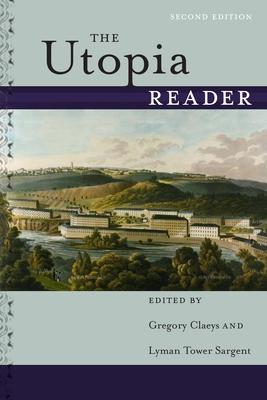The Utopia Reader compiles primary texts from a variety of authors and movements in the history of theorizing utopias.
Utopianism is defined as the various ways of imagining, creating, or analyzing the ways and means of creating an ideal or alternative society. Prominent writers and scholars across history have long explored how or why to envision different ways of life. The volume includes texts from classical Greek literature, the Old Testament, and Plato's Republic, to Sir Thomas More's Utopia, to George Orwell's Nineteen Eighty-Four and beyond. By balancing well-known and obscure examples, the text provides a comprehensive and definitive collection of the various ways Utopias have been conceived throughout history and how Utopian ideals have served as criticisms of existing sociocultural conditions. This new edition includes many historically well-known works, little known but influential texts, and contemporary writings, providing an even more expansive coverage of the varieties of approaches and responses to the concept of utopia in the past, present, and even the future. In particular, the volume now includes feminist writings and work by authors of color, and contends with current concerns, such as the exploration of the ecological ideals of Utopia. Furthermore, Claeys and Sargent highlight twenty-first century trends and popular narrative explorations of Utopias through the genres of young adult dystopias, survivalist dystopias, and non-print utopias. Covering a range of original theories of utopianism and revealing the nuances and concerns of writers across history as they attempt to envision different, ideal societies, The Utopia Reader is an essential resource for anyone who envisions a better future.
Book
The Utopia Reader
(Write a Review)
Paperback
$42.22
The Utopia Reader compiles primary texts from a variety of authors and movements in the history of theorizing utopias.
Utopianism is defined as the various ways of imagining, creating, or analyzing the ways and means of creating an ideal or alternative society. Prominent writers and scholars across history have long explored how or why to envision different ways of life. The volume includes texts from classical Greek literature, the Old Testament, and Plato's Republic, to Sir Thomas More's Utopia, to George Orwell's Nineteen Eighty-Four and beyond. By balancing well-known and obscure examples, the text provides a comprehensive and definitive collection of the various ways Utopias have been conceived throughout history and how Utopian ideals have served as criticisms of existing sociocultural conditions. This new edition includes many historically well-known works, little known but influential texts, and contemporary writings, providing an even more expansive coverage of the varieties of approaches and responses to the concept of utopia in the past, present, and even the future. In particular, the volume now includes feminist writings and work by authors of color, and contends with current concerns, such as the exploration of the ecological ideals of Utopia. Furthermore, Claeys and Sargent highlight twenty-first century trends and popular narrative explorations of Utopias through the genres of young adult dystopias, survivalist dystopias, and non-print utopias. Covering a range of original theories of utopianism and revealing the nuances and concerns of writers across history as they attempt to envision different, ideal societies, The Utopia Reader is an essential resource for anyone who envisions a better future.Paperback
$42.22